The Highest Level Of Science
KPNI Congress 2024
From PNI to Immunoneuropsychology &
From Nature to Culture
Celebrating 35 years of Clinical Psychoneuroimmunology
2-3 of March 2024
Antwerp, Belgium
English & Dutch- Translation available
This weekend is much more than an ordinary congress, it is a celebration!
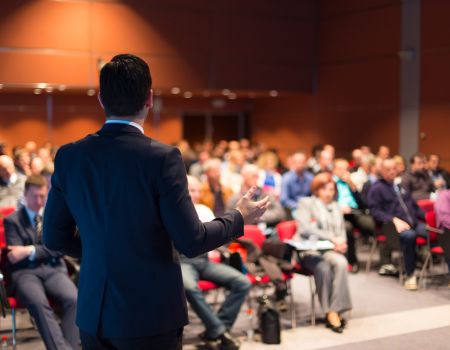
35 years ago marked the beginning of an extraordinary journey, a journey which has been filled with countless breakthroughs which today are benefiting people all over the world.
This field of science and medicine has shifted the definition of health and disease of anyone who has crossed its path, but there is much more to be shared and there is no end to what we can achieve together.
Dr. Leo Pruimboom, the founder of clinical psychoneuroimmunology, along with renowned speakers from many countries, will share their most profound discoveries over this 2 days congress.
Celebrate this significant milestone with us, and discover what the future of clinical psychoneuroimmunology holds for us.
Dates
On the 2nd and 3rd of March 2024.
Venue
BluePoint Antwerpen, Filip Williotstraat 9, 2600 Berchem.
Tickets
Basic: 417 Euros – includes lunch.
Limited VIP Tickets: 527 Euros -includes a 4 course dinner, wine and drinks. + 1 Hour of Q & A.
Our sponsors

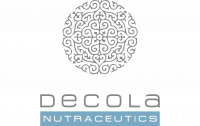

Would you like to display what your company has to offer at one of the biggest health congresses of 2024?
Send us your email and we will get in touch with you
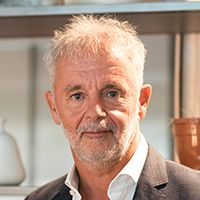
Why we prevail
Clinical PNI set the pace for transformation of medicine many years ago.
Nonetheless, there are still many medical and paramedical health officers that do not ‘believe’ that toxic emotion can produce all kinds of diseases.
We even find this in oncology as most oncologists tell people that their cancer has got nothing to do with food, emotions, social defeat, or any other factor related with LIFE. The focus on genetic mutations as the sole cause of cancer has delayed the possibility of finding solutions related with changes in LIFE.
The immune system and the brain are THE systems responsible for the surveillance of all 10 biological systems that we are made of. Very often both systems are described separately as if they do not communicate with each other. Studies that show connection between both super systems mostly conclude that they are responsible for protective functions. Although the latter conclusion has thorough scientific support, it underestimates the fact that both the immune system and the brain only can function in the right way when they are connected. This means that interruption of the connectome between the brain and the immune system, composed of neurological, endocrinological and musculoskeletal structures and substances, is responsible for most, if not all, chronic diseases that aren’t solved by today’s interventions.
The best thing is to use an erroneous hypothesis related to longevity.
The studies that lead to the definition of the blue zones came to the conclusion that food, exercise, good sleep, CHRONIC calorie restriction (Okinawa, Japon). and the maintenance of social contact are the major reasons for people living to reach hundred years or more. However, if food and all these factors were the sole reasons for longevity, then there is no explanation for centenarians that do not live in the blue zones, but in other countries such as the Netherlands, Finland, Spain and even the USA. People who often smoked, drank quite a bit of alcohol, had few or no children, an unhealthy diet and still lived more than 100 years.
So, what could be the reason for that longevity?
Did they perhaps engage in exercise? Or did they have some ‘longevity’ genes? The surprising answer to these questions is No! No exercise program nor longevity genes have been found up till today.
So, what is then the reason for the fact that these people reach 100 years or more? Could it be that they maintain the capacity of communication between the brain and the immune system and hence prevent Low Grade Inflammation? Which is one of the most important causes for non-successful aging. Are they perhaps resistant to depression? Or are they rich? Could that be the reason they live so long? Are they obese? I suppose not!
A few answers can be given, but the most important one is:
They have not lost the connection between the brain, the immune system and, perhaps unexpectedly, the urogenital organs. Surprised? Then just wait until you see, hear and feel the scientific soundness of how our health span only can be increased through the maintenance or restoration of the connection between these three systems, which ultimately are responsible for the fact that we prevail.
3rd March
Medicine started with the occurrence of life!
Although no MD was present when a Lamprey was attacked by a virus, the little worm was able to fight the virus and prevail. My great, great, great, great grandfather once suffered from a severe infection when he was on a boat travelling from Indonesia to Holland. Once again there were no MDs on board and yet he survived. Someone gave him an herb and said that that would cure him. For whatever reason he survived, and I am here because of that. Many people suffer from diseases and don’t heal, although medicine has advanced without any doubt. Some people never heal, whereas others even heal spontaneously while suffering from cancer. Even more surprisingly, some people never develop any chronic disease and live up to 90 or 100 years with a smile on their face. Those are the people who should be investigated as the most interesting non-patients in our population. WEIRD people are not the right group to investigate. They without a doubt will develop some disease, sooner or later. Nonetheless, in this group of WEIRD people, there are exceptions. And those are the ones you will get to know during this congress. Those people explain why PNI should probably be called INP.
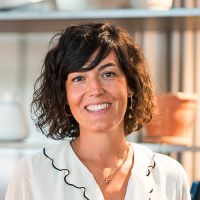
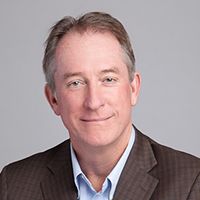
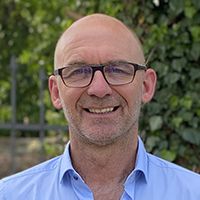
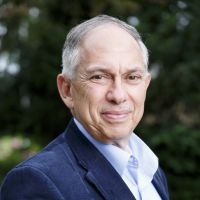

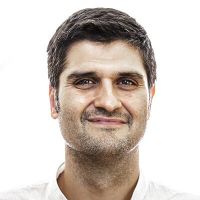
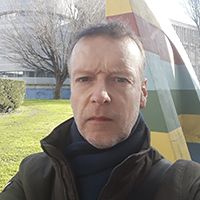
J. P. Konsman, ImmunoConcEpT CNRS UMR 51264, Univ. Bordeaux, France
J.P. Konsman is a senior scientist at the French National Center for Scientific Research (CNRS). His experimental research has focused on unraveling the neuroimmune mechanisms underlying anorexia and apathy during systemic inflammation and cancer. In addition, and as an aspiring philosopher of science and medicine, J. P. Konsman is interested in the conceptual aspects of mind-body and health and disease debates. His current work aims to provide a basic science and philosophy of science and medicine view on the idea that inflammation can drive neuropsychiatric comorbidity. To do so, a broad- stroke conceptual history of interactions between basic and clinical research will be presented that will address how 1) inflammation accompanies psychosomatic diseases and mental disorders, 2) experimental inflammation modifies behavior and mood and discuss work on 3) inflammatory biomarkers in mental disorder and 4) the effects of anti-inflammatory strategies on neuropsychiatric comorbidities.
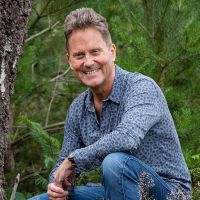
Executive & Scientific Director Alliance for Natural Health International & Alliance for Natural Health USA
Rob Verkerk PhD is a multi-disciplinary scientist, researcher, educator, regulatory expert and campaigner with nearly 40 years of experience in the non-profit sector, academia and as a consultant. He has a MSc and PhD from Imperial College London in the field of sustainable agriculture where he continued as a postdoctoral research fellow for a further 7 years, working on projects in Eastern and Southern Africa, as well as Central and South-East Asia. In 2002, Dr Verkerk founded the non-profit Alliance for Natural Health (ANH) International (anhinternational.org) and has acted as its executive and scientific director since. ANH has been at the forefront of protecting and promoting natural and regenerative health approaches internationally. As of April 2023, after being ANH-USA’s scientific director for 15 years, Dr Verkerk also took on the role as the organisation’s executive and scientific director. Dr Verkerk has authored more than 60 papers in scientific journals and conference proceedings, is a Fellow of the American College of Nutrition, and is scientific advisor to the UK-based integrative cancer charity, Yes to Life.
For nearly a century, medicine has been heavily influenced by a biochemical perspective of human health, which has in turn led to the dominance of pharmaceutical interventions in medical practice. More recently, inspired by the completion in 2003 of the Human Genome Project and the subsequent availability of rapid sequencing technologies, genomic medicine has emerged as a pivotal frontier of medicine. Other fields of biological research have had little emphasis in medicine despite evidence of their seminal importance to human evolution and health. These include frontiers as diverse and varied as water science, acoustics, biophotonics, and the effects of electrical, magnetic and electromagnetic fields. Dr Verkerk will draw on emerging science in these and related areas, discuss evidence for mechanisms of action (beneficial and potentially harmful) on the psychoneuroendocrinoimmunological (PNEI) supersystem, and he will offer clinical interventions informed by an understanding of these under-emphasised fields in the health sciences.
Program
| 2nd of March | |
|---|---|
08.00 – 09.15 | Registration |
09.15 – 09.30 | Welcome |
09.30 – 10.30 | Leo Pruimboom |
10.30 – 11.00 | Sitting break & Coffee |
11.00 – 11.15 | Diamond congress sponsor |
11.15 – 12.15 | Tom Fox |
12.15 – 12.30 | Sitting break |
12.30 – 13.30 | Lunch |
13.30 – 14.30 | Frits Muskiet |
14.30 – 15.00 | Sitting break & Coffee |
15.00 – 15.15 | Diamond congress sponsor |
15.15 – 16.45 | Charles Raison |
17.00 | PNI Apero |
18.30 | Dinner – VIP |
| 3rd of March | |
|---|---|
08.00 – 09.00 | Q & A- VIP |
09.15 – 10.00 | Martijn van Raamsdonk |
10.00 – 10.45 | Itziar Hernandez |
10.45 – 11.15 | Sitting break & Coffee |
11.15 – 11.30 | Diamond congress sponsor |
11.30 – 12.30 | Robert Verkerk |
12.30 – 13.30 | Lunch |
13.30 – 14.45 | Lucile Capuron |
14.45 – 15.30 | Daniel de La Serna |
15.30 – 16.00 | Sitting break & Coffee |
16.00 – 17.00 | Leo Pruimboom |
17.00 – 17.15 | Closing of Congress |
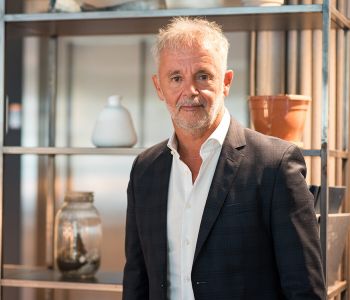
Leo Pruimboom – Director of the Pruimboom Institute
Subscribe to our Newsletter
Sign up for our Newsletter and receive the latest news from the Pruimboom Institute